What snacks should diabetics not eat?
You can eat more or less of any food, there is no absolute
For diabetics, snacking is not recommended if blood sugar control is poor. If blood glucose control is up to standard, with fasting less than 7 and postprandial less than 10, you can have a snack, but make sure to keep track of the amount you want to eat, calculate it in the total amount of food for the day, and choose foods that are low in sugar content, low in calories, and low on the glycemic index. For snacks, you can choose whole wheat crackers, fresh vegetables such as cucumbers and tomatoes, and fruits such as dragon fruit, apples, grapefruit, kiwi and strawberries. You can also choose yogurt without sugar and nuts such as almonds and hazelnuts. In conclusion, diabetic patients must choose snacks with low sugar content and calculate the calories, counting it in the total calories of the day, in order to ensure the stability of blood sugar.
No sugary or starchy snacks ah!
Many diabetics have become self-disciplined in their lives since being diagnosed and listen to their doctors, and Little G is one of them. This time last year, his doctor told him that he would have to take long term hypoglycemic medication, no fried food and no congee. he was 40 years old, 168cm, 83Kg. a year's experience has taught him that even if he takes his medication every day and doesn't pay attention to what he eats and drinks, his blood sugar will still often get a bit grumpy.
Typically diabetes due to long-term poor lifestyle is type II diabetes, the other types (type I and pregnancy) are not very relevant, type II diabetes is a large group in the population, a conservative estimate of one in 10 people; as for the undetected pre-diabetes (blood glucose is higher than normal but not enough for a diagnosis of diabetes), it is even more; and these people, if they do not make timely lifestyle corrections, it is no surprise that these people will successfully develop diabetes in about 3-5 years.

How to manage diabetes, including pre-diabetes diet is a question that many people want to know, after all, in a few minutes of each person's clinic time, the doctor can only then prescribe medication and tell: do not eat fried, do not drink porridge. Then can you eat other foods? How much should I eat? What should I do in my daily life to stabilize my blood sugar?
lose weight
There is a strong link between weight and blood sugar. You need to lose weight if you are overweight (BMI greater than 24 and abdominal obesity) or have an excessively high body fat percentage (one of the two or both). Abdominal obesity suggests excess visceral fat, and when the liver and pancreas become clogged with fat, they function less well and, over time, eventually develop diabetes.
And so we found out thatWeight loss and blood sugar control diets are very similar; that is, when some fat is lost in a healthy way, blood sugar levels improve accordingly.We can work on our diet (although there are many factors that affect blood sugar, so we'll just talk about diet today).
Calorie control and balanced nutrition
Keeping calories in check while also making the variety of ingredients as varied as possible is a guarantee of getting a fuller range of nutrients. Eat a well-structured diet of staples, proteins, fats, and micronutrient-providing fruits and vegetables, plant seeds, and nuts, but be careful to eat them in reasonable amounts.
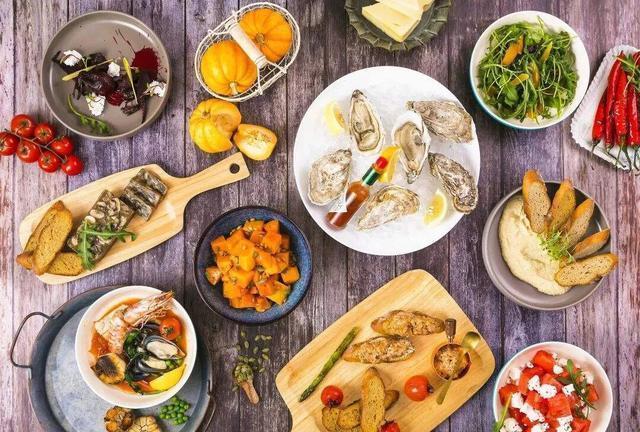
Low GI foods and low GL
Try to blood sugar foods with low glycemic capacity (low GI), generally these are also foods that are minimally processed and slow to digest, with the exception of certain high starch staples and tropical fruits. When too many low GI foods are eaten, postprandial blood sugar can still throw a tantrum, so you should also pay attention to the concept of GL, or the amount you eat at a time. Knowing the GL, you can eat a little bit of some medium GI (high glycemic capacity) foods that you normally wouldn't dare to eat; and if your blood sugar is stabilized, you can eat a little bit of some tropical fruits (watermelon, pineapple, and even durian).

To put it simply, the GI of an apple is 36 and that of a watermelon is 72, and there is not much difference between the blood sugar impact of eating a medium-sized apple (roughly 200 grams) and eating a small tooth of watermelon (roughly 100 grams). If you say, eat so little not cool, might as well not eat, to know that low GI food is not unlimited randomly eat (see GL), after all, it is before every time to eat to the cool (not specifically refers to watermelon), only to have obesity and blood sugar problems ah.
What snacks diabetics shouldn't eat
Since it is a snack, it can be interpreted as all eating outside of regular meals. Knowing the GL, you should know that there is no such thing as an absolute no-no food, it depends on the frequency and amount of food. Need to strictly limit is processed food and refined sugar, especially empty energy food, on behalf of a variety of candy, cream cake, cookies, a variety of pies and other pastries and sugary beverages; try to eat less high starch snacks and tropical fruits (high glycemic capacity), on behalf of mashed potatoes, baked sweet potatoes, pineapple, grapes, watermelon, etc.. In moderation, eat low GI fruits, apples, grapefruit, peaches, etc. (half a catty per day), ready-to-eat vegetables, sundried fruits, fruit cucumbers, tomatoes, etc.. More recommended is unsweetened yogurt, the best homemade (commercially available contains more sugar), with some fruit pieces or wheat germ, is a good snack. These mentioned above can not eat, in the case of blood sugar stabilization, you can occasionally (1-2 times a month) eat a small amount, while reducing the amount of the corresponding main meal.
Text/Wang Qiuxia
Images are from the internet and have been deleted.
I think diabetics, should not eat sugar, cakes with high sugar content, cookies, and fruits. Only in the case of stable blood sugar, two hours after the meal can eat a little bit of moderation. You can go for snacks that contain less sugar according to your specific blood sugar situation.
Thanks for the invite.
Diabetes is increasing year by year, which is closely related to our daily eating and living habits. Although there is a saying that as long as the sugar lover can maintain their blood sugar in a relatively stable state, in fact there is no certain food that can not be eaten, indeed, but for the sugar lover, some food should still be able to tolerate, can eat as little as possible, so that the blood sugar control is better, and can better stabilize the glycated hemoglobin.
So what are some of the foods that are absolutely not suitable for sugar addicts?
The first thing that has a direct impact on blood sugar is glucose in the blood, so all foods that are rich in a large amount of glucose, it is best for sugar lovers not to eat. For example, many of the current processed foods are rich in "refined sugar", which can be understood as artificially added to the more sugary foods, such as sweet drinks, cold drinks, candies, pastries, and some puffed snacks, most of the puffed snacks do not eat eat a very sweet taste, but in fact in the seasoning in nine out of ten have added a lot of sucrose.
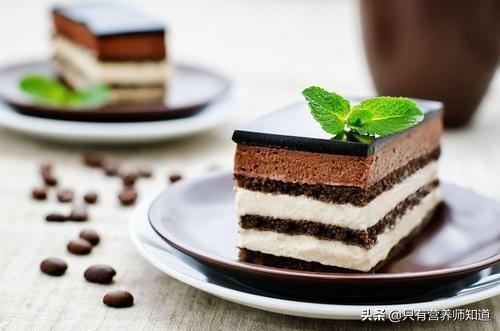
Most of the "snacks" actually refer to processed foods, such as the above mentioned cold drinks, sweet drinks, sweets (including chocolate), and pastries (including cakes, sweet breads, cookies, etc.), these foods, it is best not to eat, if one day really can not help it, do want to eat a little bit, then only a few mouthfuls is also acceptable! If you want to stabilize your blood sugar through exercise, you can reduce the intake of staple foods to balance the intake of carbohydrates, but be careful not to increase the amount of hypoglycemic medication or insulin injections because you want to eat one more piece of cake and one more piece of ice cream, which is not only less likely to stabilize the blood sugar and make it fluctuate, but also may result in all kinds of hypoglycemia, making it more difficult to control the situation of the blood sugar.
Another thing to watch out for is "starchier" foods, such as mooncakes, cookies, bread, cakes, and various pasta dishes. Starch is eventually converted to glucose, and if you eat more of it, it is also a bad choice for your blood sugar, but at least starch has some time to break down into glucose compared to refined sugar, which is slightly better for your blood sugar, but don't underestimate how fast they can raise your sugar.
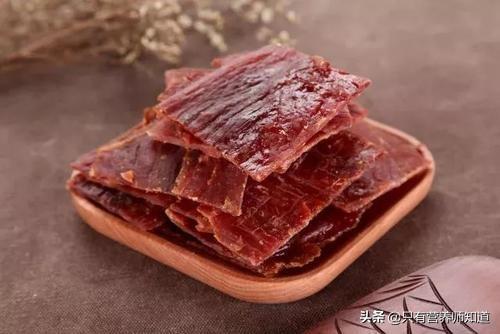
Sugar friends must be very unconvinced, cookies, bread, cakes, puffed snacks, sweet drinks, cold drinks, etc., these are not usually almost all the snacks, our diabetic patients can still eat snacks? That is not only quit? Not so, in fact, there are several snacks are also quite suitable for sugar friends to eat, such as nuts, such as peanuts, almonds, cashews, etc., although the carbohydrate content of nuts in the food is not low, but the appropriate consumption is a very good choice, they have a wealth of minerals, fat-soluble vitamins, polyunsaturated fatty acids, eat a 10g or so every day on the body is very beneficial; fruits and vegetables is also a good snack, ah, between two meals! A fruit, and help to actively prevent the occurrence of hypoglycemia, in addition to dried meat foods, they are low in starch, carbohydrates, choose not to add refined sugar dried meat can be consumed. If you want to drink sweet drinks, you can choose to replace sugar sweet drinks, they use sweeteners instead of sucrose, less impact on blood sugar, sugar lovers can drink properly.
The principle of choosing snacks for diabetics lies in:First, choose one with high nutrient density; second, choose one with low impact on blood sugar. Of course special circumstances, such as to avoid the occurrence of hypoglycemia when going out, exercise can carry some candy, chocolate, etc., but is not recommended as a snack for a long time.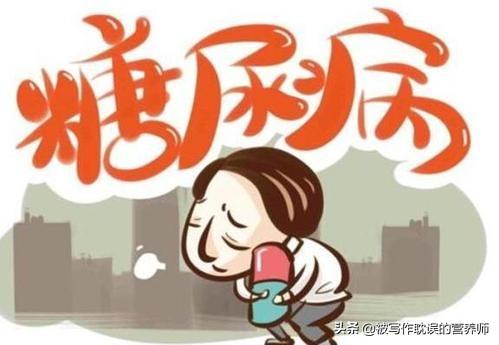
In terms of selection principles, something with little nutritional value, too high a glycemic index or too much calorie fat is less suitable for diabetics to eat as a snack, to name a few:
- Inflated food: typical representative of shrimp chips, etc.
- Fried foods: dry noodles, French fries, fried chicken, etc.
- Processed meat: dried meat, sausage, canned meat, etc.
- Fruits with high sugar content: cantaloupe, dates, lychee, etc.
- Flavored dairy products: fruit-flavored yogurt, blended dairy products, etc.
- High-sugar foods: candied fruit, cream cakes, shortbread and other foods with pastry
Some of you may be saying, by that standard, where are the edible snacks?
For this problem, the author would like to say: the so-called can not eat snacks, not that eat will necessarily have how serious consequences, but out of the characteristics of the disease of diabetes, the division of some of the short-term or long-term glycemic control of food is not favorable, the proposal can be adopted, is the problem of personal choice.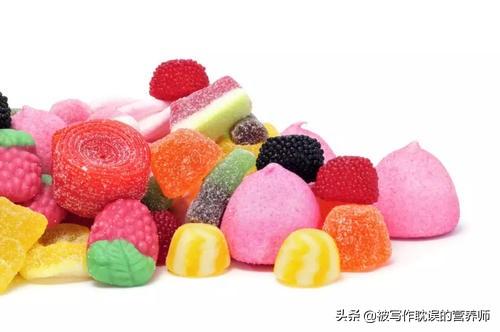
Again, let's talk about snacks you can eat with diabetes, or you can't eat anything and it can really affect your mood.You can eat plain milk, plain yogurt, a small amount of nuts, low GI fruits, sugar-free foods such as sugar-free cookies, and whole grain breads as snacks or additional meals, which have little effect on blood glucose control, and the first four are of high nutritional value, which promotes the health of the organism.
Thanks for reading, I hope this helps.
First of all, snacks are called snacks because they can only be used as an extra meal and cannot be eaten much after all instead of regular meals. If as an occasional meal, which snacks are not suitable for diabetic patients to eat?
Unsuitable snacks for diabetic patients are characterized by high oil, high salt, high sugar and high energy. Diabetic patients consume snacks containing such characteristics, will not be conducive to the control of blood glucose, blood lipids and other indicators.
So which foods have these three characteristics?
Generally has a fragrant and delicious so very seductive and deceptive appearance of snacks with such characteristics, such snacks include: a variety of sultry candies, lollipops, cotton candy; hot fried chicken wings, fried food, puffed food, fried potato chips, spicy strips; icy and stimulating cola and other sugar-containing carbonated beverages, sweet and cloying ice-cream, ice-cream, preserved fruits, and juice content of less than 30% of the beverage.
In addition to these, I would like to mention that it is not recommended for sugar lovers to consume snacks containing trans fatty acids on a regular basis.
Why are snacks containing trans fatty acids not recommended?
Trans fatty acids can raise LDL cholesterol and lower HDL cholesterol levels, thus increasing the risk of coronary heart disease; trans fatty acids in artificial fats can induce tumors, type 2 diabetes, and so on.
The risk of coronary heart disease in diabetic patients themselves is 2-4 times that of normal people, and if they then consume foods rich in trans fatty acids on a regular basis, then the risk of cardiovascular events is very high, and it is hoped that diabetic patients will need to be more vigilant!
What foods contain trans fatty acids?
Trans fatty acids are found in: margarine, shortening, buttered bread, hydrogenated vegetable oils, fried potato chips, margarine, and more.
Therefore, when you buy snacks, you need to pay attention to the ingredient list. If these ingredients mentioned by me are found in the ingredient label, it means that the food contains TFA. If some foods are labeled as "0 TFA", we are also advised to read the ingredient list. This is because the Code of Practice for Nutrition Labeling of Foods issued by the Ministry of Health in December 2007 stipulates that when the content of TFA in food is ≤0.3g/100g, it can be labeled as zero. That is to say, if the content of trans fatty acids in food is less than 0.3%, it can be labeled as zero. Therefore, you must read the ingredient list before you do so.
If you are particularly addicted to foods rich in trans fatty acids, it may suggest that your body is deficient in healthy fats containing essential fatty acids, such as those found in fish and nuts. It is recommended to slowly cut down on junk snacking by supplementing properly with foods rich in essential fatty acids to reduce your addiction.
Finally, if sugar lovers can't control themselves and are tempted to eat the unhealthy snacks I've mentioned, it is recommended that you take in no more than 1 time per week, and control your intake each time you eat to avoid excessive blood sugar fluctuations.
Diabetics are advised to choose foods labeled as "sugar-free" so that they do not affect their blood sugar.
According to the national standard "General Rules for the Labeling of Prepackaged Foods for Special Dietary Uses", the requirement for "sugar-free" foods means that the sugar content per 100 grams or 100 milliliters of solid or liquid food is no more than 0.5 grams. The 0.5g includes monosaccharides (e.g. glucose, fructose, galactose) and disaccharides (e.g. sucrose, lactose, maltose, etc.). The sweetness of sugar-free foods comes from sweeteners. Sugar content must meet national standards before the word "sugar-free" can be labeled on the package.
Sucrose-free food, just simply does not contain sucrose, many "sucrose-free food" ingredients, although there is no sucrose, but you can find "glucose syrup", "maltodextrin" words. The term "blood sugar" refers to the amount of glucose in the blood. Blood sugar refers to the glucose in the blood. Those products are claimed to be "sucrose-free", but they contain glucose, which is the more immediate sugar-boosting ingredient, and maltose (consisting of two molecules of glucose) and maltodextrin (an intermediate product of starch breakdown, consisting of a few molecules of glucose), which are the fastest-boosting ingredient. This is very dangerous for diabetics, and it raises blood sugar even faster than sucrose!
Therefore, whether it is for people with high blood sugar or people who want to lose fat and lose weight, we should try to choose foods labeled "sugar-free". Read the ingredient list and the labeling, so as not to affect our blood sugar.
I hope that helps!
I think you can eat anything, make sure you eat small controlled amounts!
This question and answer are from the site users, does not represent the position of the site, such as infringement, please contact the administrator to delete.